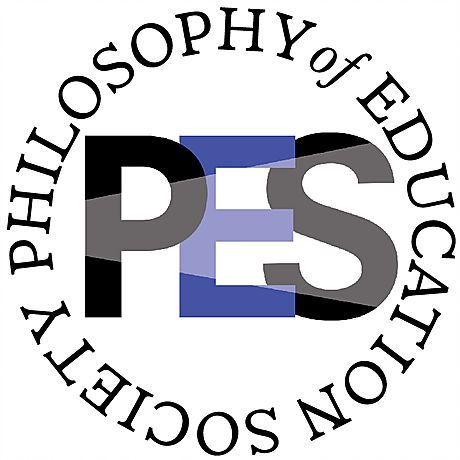Policies
Conference
Subsidized graduate student rooms are available to students members only. Students must pay room fees before their reservation is guaranteed. (2001)
New members should have special markers on their name tags. (1993)
Yearbook
Papers to be considered for submission must not exceed 4500 words. Responses to papers must not exceed 1500 words. Both limits include endnotes. (1993)
Permission to reprint articles from the yearbook is generally granted to both member and non-member authors.
Committees
The President-Elect shall appoint committee members prior to taking office, and announce the appointments at the business meeting at which the President-Elect takes the gavel. (2002)
Membership
Members receive Educational Theory from the date they renew their membership through the end of the fiscal year (June 30).
Members will a receive discount for early conference registration. The amount of discount is determined by the Executive Board with advice from the finance committee.(2007)
Members who are behind in their dues by two academic/fiscal years will be marked as "inactive." The Executive Director may send reminder emails to those whose memberships have expired or are about to expire. (2001)
Elections
Members of the Election Committee may not serve as candidates while serving their term on the committee. (200l)
Officers’ Compensation
With advice from the Finance Committee and consistent with the ongoing financial health of the Society, the Executive Board may approve fair and appropriate compensation for the following individuals for the upcoming year: the President, Executive Director, Program Chair, Editor(s)-in-Chief of the journal, Hospitality Chair, Meeting Planner, and Social Media Coordinator (if that person is a graduate student). Any such compensation must be reapproved on an annual basis. (2016)
POLICIES UPDATED JAN 27, 2023
PES Anti-Harassment Policy (2019)
The Philosophy of Education Society is committed to providing a welcoming conference experience for everyone. Members of the Society recognize a shared responsibility to create and sustain a positive environment for the benefit of all and will not tolerate harassment of conference participants in any form.
We define harassment as single or repeated instances of unwanted behavior that creates an unwelcoming professional environment on the basis of gender, sex, race, religion, or ability, among others. Harassment includes, but is not limited to:
Demeaning, intimidating, or other verbal comments and gestures that reinforce structures of domination and bias related to race, ethnicity, national origin, language, age, religion, gender, gender identity and expression, sexual orientation, disability, and physical appearance;
Physical intimidation or stalking;
Unwanted physical contact;
Unsolicited sexual attention.
Members of the Society and conference participants are asked to consider the effects of their actions on others, especially those likely to have less institutional power: graduate students, junior faculty, and new members. Members of the Society are expected to understand that harassing behaviors may not be intended to harass or demean; the effects are nevertheless of ethical concern. Members are expected to understand the effects of formal or informal power structures that render it difficult to ascertain what is unwanted. For example, an individual might tolerate unwanted behavior if there are power imbalances between the individuals involved, but tolerance is not consent. It is every member’s responsibility to be vigilant about how their behavior affects the experiences of others and stop unwelcome behavior. Witnesses to harassing behavior are expected to intervene.
Individuals who experience harassing behavior at the PES-sponsored activities but feel uncomfortable addressing the situation directly are encouraged to report or consult with members of the Just Community Committee. The Executive Board has charged this committee with the responsibility of reviewing reports of incidents. It is designed to act as a neutral resource to receive concerns, grievances, and complaints; to provide information about resources on/off the relevant home institutions; and to offer feedback and relevant support. As a small society, with limited jurisdiction over the conduct of our members beyond scheduled events sponsored by the Society, the Committee will do its best to facilitate resolution fairly and quickly, with due attention to the privacy and professional concerns of all involved. For example, it may write an ‘informal’ letter to the alleged offending member to inform him/her that a concern or allegation has been received; the letter would note specifically that the Committee does not prejudge allegations, take sides, or warrant the truth of any particular claim. If appropriate, such a letter could go further and make additional requests, such as to eschew contact with the complainant, directly or through third parties. In cases of harassment that exceed the charge of the Committee, the Committee may take steps to facilitate the process of complainants seeking help from their campus policies and offices.
Both within sessions and more informally, philosophy of education requires a free exchange of information, ideas, beliefs and opinions in diverse forms, and it may well include discussion of controversial topics and unpopular points of view. However, such freedom of exchange and expression cannot exist without an equally vigorous commitment to, recognition of, and respect for the freedoms of others, and concern for the well-being of every conference participant.
The Executive Board recognizes its right and responsibility to keep PES activities and events welcoming, professional, and respectful of all.
Note: The names and contact information for members of the Just Community Committee will be posted in the Conference program every year.
